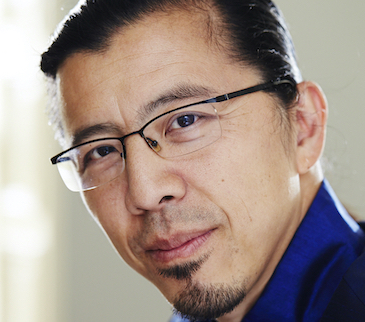Once you’ve put a lot of information into your brain, we all know some of it sticks, some it doesn’t, and some of it sticks in a form that’s not the way you put it in. Meditation is a way to walk down the aisles of your memory and see what’s there, where it is, and how it shows up.
In addition to the information you’ve been storing about the music, you will have other kinds of stored memories such as your expectation about how the piece will sound. What is your mental expectation of how your hands will work? What are the fingerings that you expect to use? These expectations are being created before you play, while you play and after you play. There are constant, parallel tracks of physical work, mental work and emotional work that influence each other, but which are, in my opinion, very independent and clearly defined areas of work.
Free associations while practicing music.
Your mind is constantly free associating between music things, but especially between music and non-music things. This always happens, whether you’re learning, practicing, or performing. It’s always going to happen. After all, we’re using the same body, the same mind and the same heart to play piano as to live the rest of our lives. In fact, our individuality as musicians is rooted in the unique associations we have built up. The richer the associations, the richer our understanding of the piece and our performance.
Meditate to build strong associations.
Meditation is a tool that helps us observe these free associations. Often we try to push them away in an effort to “concentrate.” My method is to acknowledge them and let the free association happen. Instead of pushing them away, prepare yourself to expect them and observe them when they happen. In that way they don’t disrupt our thinking. If I’m working on a passage and suddenly I think about some scene with my teacher, like an argument or something, somehow that passage has a strong emotional component. If we try to get rid of the association, that emotion is nevertheless still there and when we perform that passage it’s going to be heated up and evoked even stronger. And if we ignore it, then all of a sudden we’re getting nervous during that passage and we don’t know why. Instead, if I see that there’s a strong emotional reference evoked somehow by a passage, I let it happen. I try to examine why it happened. I try to understand and then harness it so that somehow that becomes part of my signature interpretation. It’s obviously something that’s in the music, and the reason it’s coming out is because it is a strong, evocative passage.
Music is strong and evokes and inflicts the deepest emotions that we have. So meditation is just this constant sense of watching what happens, to be able to be not surprised by it. Then the next step is to actually harness those things to make this interpretation yours and yours alone, anchored in your personal experience.
You can read here about building Mental and Emotional associations while memorizing music.
#practicing

Frederic Chiu
Frederic Chiu is a piano faculty at Carnegie Mellon University and the Hartt School. He performs at major venues on five continents: Lincoln Center in New York, Kennedy Center in Washington, The Chatelet in Paris, the Mozarteum in Buenos Aires, as well as touring extensively in smaller and unusual venues. He collaborates with Classical music friends Joshua Bell, Pierre Amoyal and the St Lawrence String Quartet, as well as non-Classical friends like jazz pianist Bob James or storyteller David Gonzalez, to bring vivid live piano experiences to all audiences.
Frederic Chiu has recorded the most extensive complete piano works of Prokofiev, and his personal relationship with the Prokofiev family has made him a world-recognized advocate of the composer. Across 28 albums, he has recorded works of Chopin, Liszt, Ravel, Mendelssohn, Brahms, Rossini and Grieg, and most recently the Beethoven/Liszt Symphonies V and VII. “Hymns and Dervishes,” music of Gurdjieff/de Hartmann, Distant Voices: Music of Claude Debussy & Gao Ping, and Schubert’s Fantasy for Violin and Piano demonstrate his wide legacy in recording.



Comments are closed.